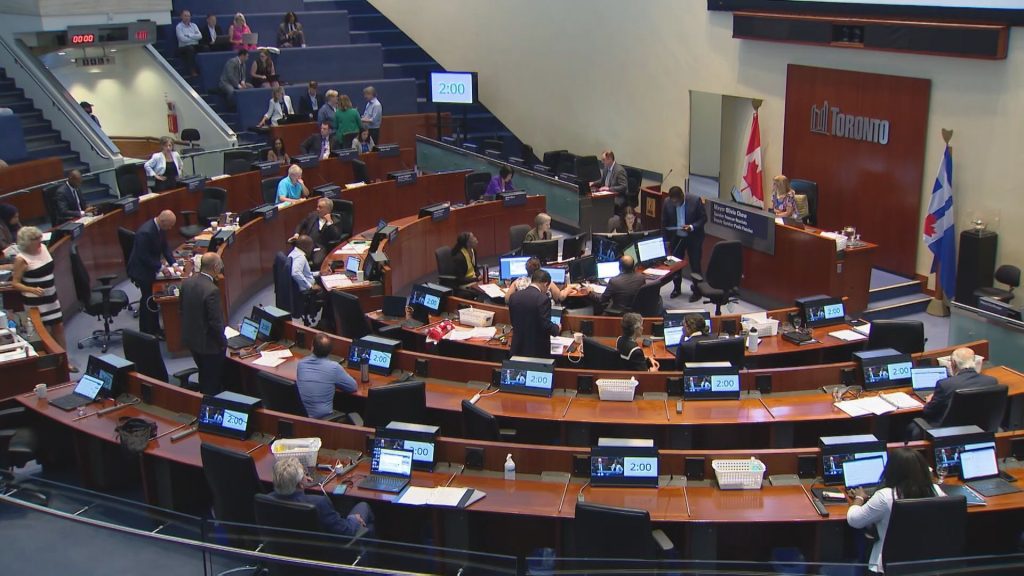Toronto City Council has officially approved a contentious bylaw aimed at restricting protests around places of worship, schools, and daycares. After a daylong debate marked by strong opinions and division among council members, the councillors voted 16-9 in favor of the "bubble zone" bylaw, which is set to take effect on July 2.
The newly passed bylaw expands the exclusion zone from 20 to 50 meters, enhancing the buffer around places such as churches, mosques, synagogues, and daycares. It also extends the duration for which the bubble zone remains in effect from six months to one year. Notably, the application process for establishing these zones has been simplified; previously, an owner had to demonstrate they had been affected by a protest, a requirement that has been eliminated. Consequently, any religious institution or daycare that applies for a bubble zone will automatically receive one.
Violators of this bylaw could face severe penalties, including fines of up to $5,000, and may even be arrested for noncompliance. City councillors estimate that this bylaw could potentially apply to approximately 3,000 locations within Toronto.
The conversation surrounding this bylaw has been ongoing for over a year, as the City Hall has grappled with the issue of protests occurring outside vulnerable institutions. Proponents of the bylaw argue it is a necessary measure to combat antisemitism, whereas opponents see it as an infringement on constitutional rights and freedoms. Coun. Brad Bradford, a supporter of the motion, emphasized, “The bylaw as proposed protects rights to protest; there are lots of places that you can do that, but we're not going to allow the hateful intimidation of people who are trying to practice their faith.”
Opponents of the bylaw expressed concerns over the potential erosion of democratic values, arguing that existing laws against hate speech should suffice. Coun. Gord Perks, one of the dissenting votes, remarked, “If you support protests, you have to support it for people you disagree with too.” During the debate, tensions flared when a protester had to be removed from the council chamber after yelling accusations of “weaponizing antisemitism” against the councillors.
Amidst this heated discussion, Coun. Chris Moise proposed a motion to defer the bylaw until the federal government introduced similar legislation, describing the current situation as “divisive.” Supporters of his motion argued it would be prudent to wait for guidance from the federal level. However, his motion was ultimately defeated by a vote of 16-8, with council members like Coun. James Pasternak advocating for a locally crafted solution to what he called a unique situation for Toronto.
Coun. Bradford rebuffed the notion of deferring the decision, asserting that delaying any further would be irresponsible. He stated, “Nineteen months into this mess of what we’ve seen happening, further debate, further deferral, further delay is unhelpful.” Other councillors echoed this sentiment, emphasizing the urgency to act.
Critics of the bylaw are preparing for a legal challenge, asserting that its vague elements may contravene the Canadian Charter of Rights and Freedoms. Louise Smith of the Coalition for Charter of Rights and Freedoms expressed concerns about the lack of clarity in defining what constitutes an “act of disapproval” within the exclusion zone. When queried regarding the charter compliance of the bylaw, the city's solicitor acknowledged that while they could defend it in court, predicting the outcome of any legal challenge remains uncertain.
Alan Carter contributed to this report












